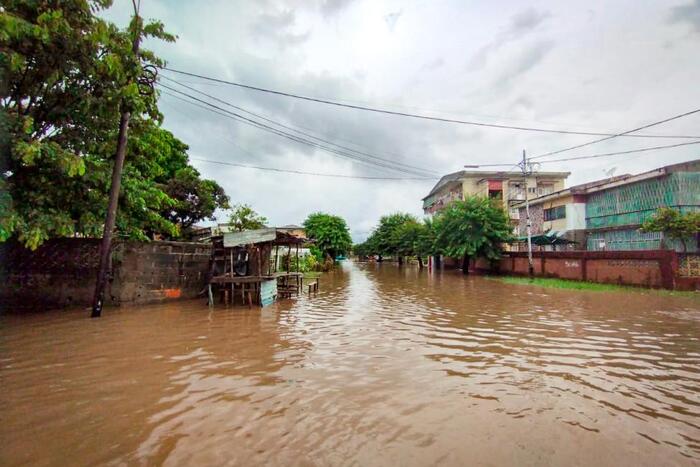Mozambique has been hit by powerful winds, heavy rain, and flooding as Cyclone Freddy makes landfall for the second time in just four weeks. The amount of precipitation in the southern African nation has exceeded the amount expected in twelve months. Freddy, which originated in the northwest of Australia over a month ago, has the potential to surpass any earlier storm in terms of longevity. At least 28 people have perished since the storm initially hit land, with one additional fatality being recorded.
On Saturday at 20:000 GMT, the cyclone made a second landfall close to Quelimane’s eastern port. Officials are urging people to take up residence in temporary abodes such as educational institutions, places of worship, and storage facilities. Local disaster agencies have estimated that over half a million individuals may be in danger of a potential humanitarian emergency.
According to different sources, one person died when the powerful gusts of wind caused the collapse of his house. As a precaution, the electricity provider has ceased operations, and all flights have been put on hold. The cyclone has been stalled in the ocean and is expected to reach land soon.
Vania Massingue, a charity worker from the port city of Quelimane in Zambezia province, remarked to Reuters that the sight of houses with ruined rooftops, smashed windows, and flooded streets are frightening. Aid workers are currently working in the area, yet concerns exist that the help they are providing could be hindered by the additional rainfall brought by Freddy’s return.
It has been determined by experts that global climate change is making tropical storms stronger, more vigorous, and wetter around the world. Freddy had set new benchmarks for the power it gained during its 8,000-km (5,000-mile) trek through the Indian Ocean to reach north-western Australia.
The national disaster management agency of Mozambique has calculated that over the last month, the storm has affected more than 1.5 million individuals, with approximately 8,000 having to flee their homes. Local aid workers are currently on assisting assistance, but the situation remains critical.
The cyclone has brought renewed attention to the devastating impact of climate change on vulnerable communities around the world. Mozambique, which is already grappling with poverty and the aftermath of previous natural disasters, is now facing an even more precarious situation. Urgent action is needed to address the root causes of climate change and to provide support for those affected by its devastating consequences.
Image Credit: IOM/Mozambique




